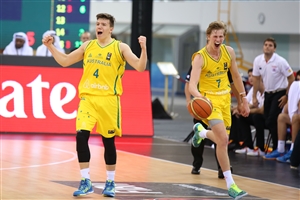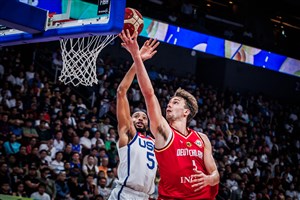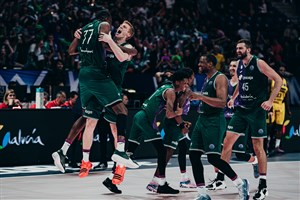
Madonna and Christ make basketball headlines
Charlotte (Steve Goldberg’s Wheel World) – "Madonna wins wheelchair basketball tourney," read the headline.
Impressive I thought. I’ve wondered what the Material Girl had been up to in her AARP years (the over 50 crowd here in the U.S.). She was always athletic but who knew that she would have hoop dreams.
But it wasn’t her, nor was it the other Madonna. You know, the first one.
The headline from a Lincoln, Nebraska newspaper was actually heralding a local team called the Madonna Magic taking top honors in a tournament they hosted last month.
It wasn’t the first time a headline gave me pause with its possible direction. That would be the one about the son of the original Madonna.
Many years ago, the New York Daily News ran a preview story about a Catholic high school in Queens that was looking to redress a previous loss to a rival in a coming game.
Absent context, it certainly would have been cause for alarm if it were on the front page and not the sports section. Straight to the point and somewhat intimidating, it read, “Christ the King Seeks Revenge.’
Less Armageddonish, the Madonna Magic simply had a great weekend in NWBA Championship Division play, going undefeated against the Minnesota Timberwolves, Southwest Minnesota State, and the Denver Rolling Nuggets to win their home court tournament.
Meanwhile, Gaz Choudhry who represented Great Britain in the London 2012 Paralympics and in both the 2010 and 2014 IWBF Wheelchair Basketball World Championships, wants to go home.
Currently playing professionally in Italy for domestic league champions Briantea 84, the Pakistan-born British national, would like to be able to make his living as a professional wheelchair basketball player on the island that ancient Greek geographers called Prettanikē.
Unlike their standing counterparts, there are only a few countries where wheelchair ballers get paid to play such as Italy, Germany, Spain and Turkey.
Choudhry recently told Sky Sports that the top British players are forced to move because of a lack of opportunity (at home).
To be clear though, British Wheelchair Basketball has become one of the best funded national governing organizations in the sport.
"Team GB is funded by UK Sport National Lottery, which is second to none," said Choudhry who started playing the sport aged 12 after having his right leg amputated due to bone cancer. "But in most other countries, clubs are well funded."
Wanting it and making it so is not so easy. As Choudhry inferred, the European pro sides are mostly tied to larger sport clubs that feature top league basketball and/or soccer teams as revenue drivers. In Turkey for instance, those include well-known brands such as Galatasaray and Besiktas.
GB players are not alone in their desire to have a domestic professional game. The rosters of European pro wheelchair teams are dotted with many of the best Americans, Australians, and Canadians who look to earn a living between representing their countries at Paralympic and World Championship tournaments.
For the Americans, there has been the advantage of having varsity level wheelchair basketball at a number of universities, something that has been beneficial for international players as well. But while NCAA level players have the NBA, the D League and overseas opportunities to earn a living, it is far more limited for wheelchair athletes.
For those outside the existing European pro leagues, it’s no different from any other Paralympian or Olympian who has to balance training with a job to pay for that and everyday living expenses.
While the chance to play in another country certainly has its benefits – Choudhry currently lives in Milan and played in Germany for the previous two seasons – there is also personal sacrifice.
"I would love for it to change, I want nothing more than to play at home and be with my family. My partner lives in Liverpool and my family in London, so it’s a difficult task balancing that."
The 29-year-old Choudhry believes that a professional league would boost UK chances at grabbing the top spot on the podium in a Paralympic Games or World Championship, something they’ve never achieved.
As in American and Australia, UK clubs play in amateur leagues and only one of them has won the European Champions Cup in the tournament’s history.
"We are not a basketball nation so we don’t have the structure (of other countries where pro teams exist). Clubs have been professional in Europe for 15 years. They have a long history, whereas one British team has won the Champions Cup since 1993. In club basketball it is not even close."
The pro game has not been just for the men; several female athletes have traveled to Europe to play professionally on men’s teams. Australia’s Liesl Tesch was a groundbreaker in that while more recently, Canada’s Janet McLachlan has continued to improve her game that way.
Former GB Women’s National Team player Josie Cichockyj might have been one as well had the opportunity existed during her prime.
A multi-sport athlete like so many of her generation, she represented Great Britain in wheelchair basketball, tennis, table tennis, and athletics in three Paralympics from 1988 to 1996.
Cichockyj passed away on December 2. She was fifty years old.
She captained the women’s wheelchair basketball national side from 1989 to 1992, competing at the 1988 and 1996 Summer Paralympics in the sport, with a best finish of sixth at the 1996 Games. She won two bronze medals with her team at the 1995 and 1997 European Championships.
"Josie had an inspirational career for Great Britain and turned her passion for playing to coaching where she inspired and developed people to reach their potential," said British Wheelchair Basketball CEO Charlie Bethel.
"Her contribution, lively personality and contribution will be sadly missed."
Steve Goldberg
FIBA
FIBA's columnists write on a wide range of topics relating to basketball that are of interest to them. The opinions they express are their own and in no way reflect those of FIBA.
FIBA takes
no responsibility and gives no guarantees, warranties or
representations, implied or otherwise, for the content or accuracy of
the content and opinion expressed in the above article.
To help
make this column as inclusive as possible, please send any national or
international event information, story suggestions, or comments to wheelworldmail@gmail.com.
















